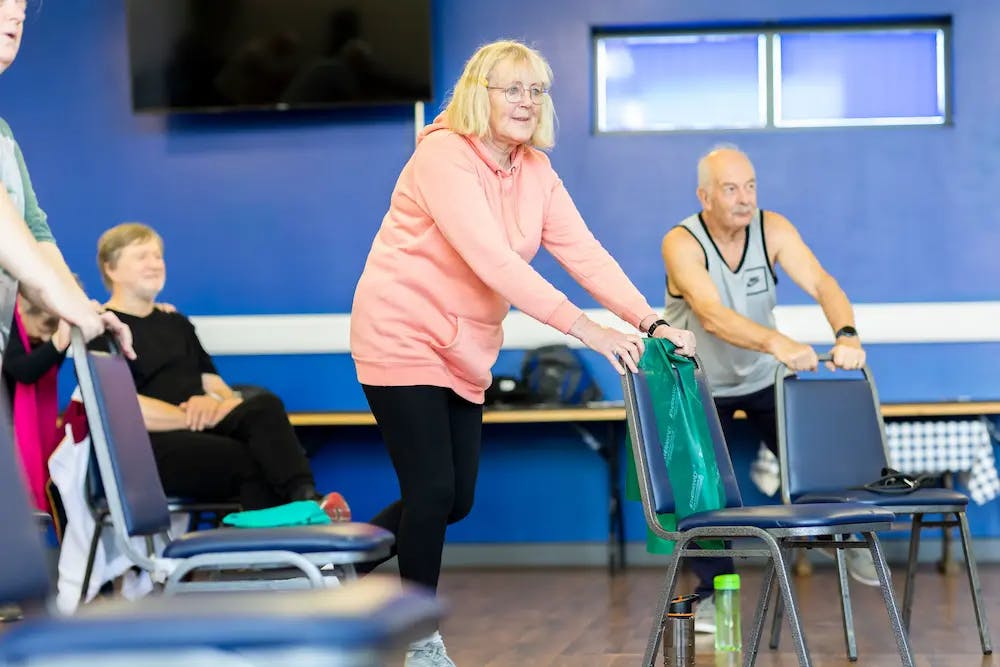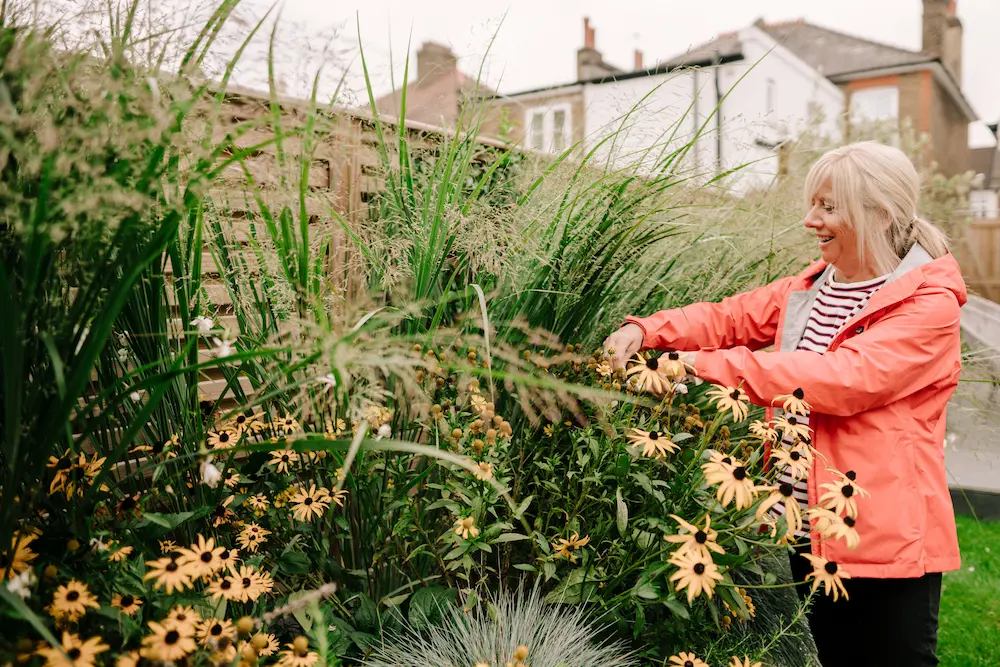The Importance of Meaningful Activities in Care Homes

Estimated Reading Time: 8 minutes
In a care home, residents have a few different requirements that need to be met. Aside from personal care, it’s also important to look after social health and well being. One of the best ways for care homes to meet these needs is through a range of amazing activities that improve quality of life and provide some much-needed structure.
Here, we’ve looked at a number of meaningful activities in care homes, along with their benefits and the importance of physical and mental health.
Browse recommended local homes
Compare care homes with availability near you.
In this article:
- What does a meaningful activity mean?
- Benefits of meaningful activities
- The importance of mental wellbeing
- Risks of a lack of purposeful activity
- The National Institute for Health and Care Excellence (NICE)
- Types of meaningful activities
- Meaningful activity ideas
- Helpful resources
What Does a Meaningful Activity Mean?
Within a care home, activities aren’t only there to give residents something to do or keep them entertained. They’re actually an integral part of supporting people’s wellbeing and health, with regular activities for older adults being essential for physical, social and mental well being.
With that being said, activities work best when they’re meaningful. This means that they’re tailored to the needs and interests of individual care home residents. Tailored activities to a resident’s personal identity won’t just strike up some lovely conversations between yourself, other residents and members of staff, but it’ll also help care home staff step into their residents’ shoes and better emphasise with them.
Meaningful activities are even more important at the moment, with visiting often still restricted. This is especially true if your loved one is living with something like dementia, as being able to take part in activities that they have a genuine emotional connection to will do them the world of good.
According to the National Institute for Health and Care Excellence (we’ve gone into these more later), meaningful activities can be physical, social or leisurely. Activities can involve daily tasks like dressing, eating or washing, but can also include leisure activities like reading, gardening and singing. A meaningful activity in a care home will emotionally and creatively stimulate you or your loved one.

Benefits of Meaningful Activities
Having an interactive social life is just as important for older people as it is for younger people. Being socially active through meaningful group activities in a care home will make a huge difference to the self-worth and happiness of you or your loved one. This is also why social areas and lounges are often set up to encourage residents to form friendships with each other.
A jam-packed calendar of social activities for care home residents has been shown to greatly improve physical and emotional wellbeing, while taking part in regular exercise (however gentle or strenuous) will help you stay more flexible and mobile.
Here are some of the other benefits of meaningful activity within a care home:
- Your quality of life will be improved
- They’ll provide structure to your day
- You or your loved one will be given a sense of belonging and importance
- They’ll help physically as well, with balance, coordination and muscle strength potentially all benefitting - allowing you to stay on your feet for longer
- Regular activity will also lower your risk of heart disease, strokes and dementia
- Moving around more helps with thinking skills like problem-solving and decision-making
- Feelings of loneliness, stress and boredom will decrease
- Behaviour that comes from restlessness like trying to move unaided and falling will be less likely
- Your sleep cycle will likely improve
The Importance of Mental Wellbeing
Particularly for care home residents and people in similar social care settings, being able to maintain mental wellbeing and have a positive outlook on life is incredibly important.
Some of the key areas of mental wellbeing to consider in you or your loved one are optimism, self-esteem, feeling in control, having a purpose in life, having a sense of belonging and above all, feeling satisfied with life.
Good care homes will have a dedicated member of staff that’s employed to ensure residents can have plenty of life satisfaction through some brilliant activities that are regularly arranged, often on a daily or weekly basis.
Known as an activity coordinator, they will look after the mental wellbeing of residents by tailoring an activities programme in residential care to every resident’s individual needs and preferences (person centred care) while also ensuring everyone who wants to is taking part. Some of the most meaningful activities that will work wonders for elderly mental wellbeing include reading, gardening, singing and day trips out of the care home (more on this later).
These activities should be varied and fun! The goal of these activities should be to keep you or your loved one happy, fulfilled and content.

Risks of a Lack of Purposeful Activity
If care home residents aren’t given enough access to purposeful and meaningful activity then their mental and physical wellbeing may be affected as a result.
Here are some of the other dangers to you or your loved one when there’s a lack of purposeful activities in a care home:
- A reduction in overall wellbeing through things like increased confusion, being less alert and having a low mood
- Feeling disconnected and isolated from others
- Weak muscles and joints, likely due to a lack of gentle exercise
The National Institute for Health and Care Excellence (NICE)
The National Institute for Health and Care Excellence (NICE) aims to improve health and social care across the UK. Their role is to improve the services offered by facilities like care homes through guidance and advice for health, public health and social care practitioners.
NICE says that it’s important for older people to be given the opportunity to take part in meaningful activities as this will have a positive effect on health and mental wellbeing. They also say that care home residents should be encouraged to take an active role in choosing activities that are meaningful to them. It’s even better if the person’s wishes and that of their family and friends are involved when planning everyday activities.
Another thing NICE look into is whether staff are trained to offer opportunities for you or your loved one to participate in meaningful activities within a care home. They say that the very best activities will have a big and positive impact on health and mental wellbeing and will be offered by enthusiastic and compassionate members of staff.
Types of Meaningful Activities
A social activity is classed by NICE as organised or spontaneous. Activities should be varied to ensure there’s something for everyone. Residents should be actively encouraged to get involved and take part. This encouragement will help to build a wonderful care home community and culture that you or your family member can be a part of!
Activities should provide a sense of purpose to residents. If a resident creates something by using skills from their former work or personal life or makes a similar sort of contribution to the care home then this could well end up being a really rewarding experience for them.
Though you or your loved one may not enjoy taking part in competitive games like cards or bingo, you may enjoy reading and wish to be involved in a book club as a result. This example helps to illustrate why activities should be varied to suit everyone.
Whatever the preference of you or your family member, finding the perfect set of meaningful activities will go a long way to creating an enjoyable and fulfilling care home experience.
Here’s an example breakdown of the meaningful activities that a care home (such as a nursing home) could offer to its residents on a daily or weekly basis:
- A regular programme of acts that perform in the care home, including comedians, musicians and entertainers
- Creative gardening and similar outdoor activities
- Arts and crafts sessions that allow residents to experiment with styles
- Other resident meet-ups like a weekly book club where residents take it in turns to pick a book
- A fully-equipped minibus that takes residents on regular trips to attractive local countryside, nearby amenities and other places of interest

Meaningful Activity Ideas
Plenty of care homes offer exercise classes which residents can take part in while seated on a mat or stood up - whatever works best for their own fitness levels. Classes like this should be fun, interactive and rewarding for everyone taking part. They should also play a big part in helping you or your family member remain active while building up confidence and feeling independent in care.
Here are some other ideas for meaningful activities that can be easily set up within a care home. We’ve arranged them alphabetically to make this list easy to navigate!
- Afternoon tea
- Arts and crafts (such as painting, drawing or art classes)
- Bingo
- Birthday celebrations
- Board games
- Book club
- Card games
- Cooking
- Day trips to local attractions, gardens or anything else enjoyed by residents
- Dog days (or pet days in general if there’s a different type of animal you or your loved one prefer)
- Entertainment events
- Exercise classes
- Family days
- Flower arranging
- Games nights
- Gardening
- Singing groups
- Quiz nights
Helpful Resources
What is it like living in a care home?
What an activity coordinator does in a care home
Care home residents share their advice for World Friendship Day 2022
National Institute for Health and Care Excellence



